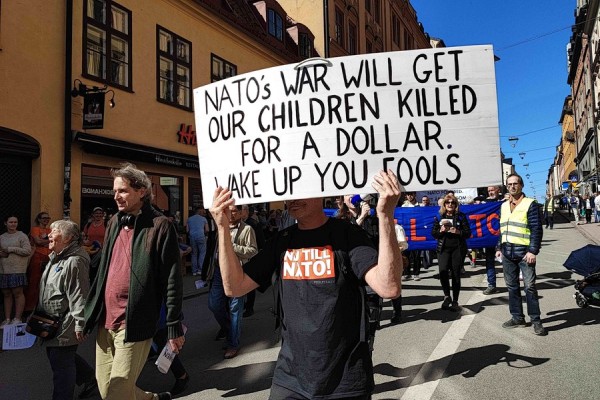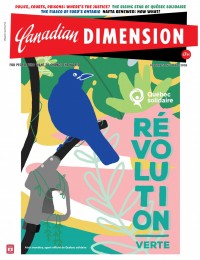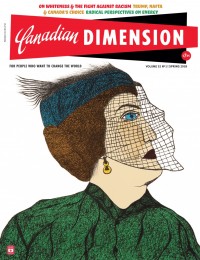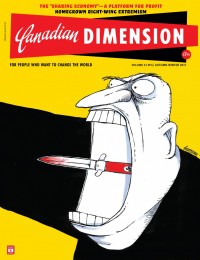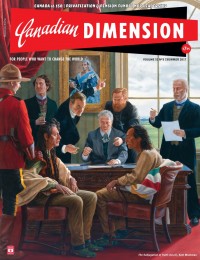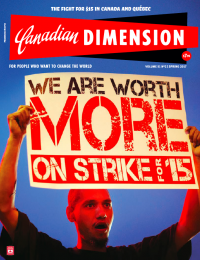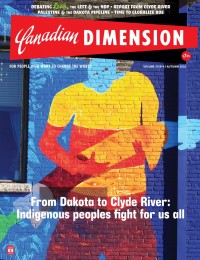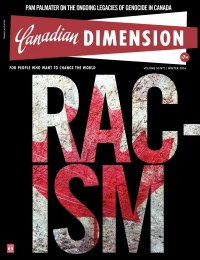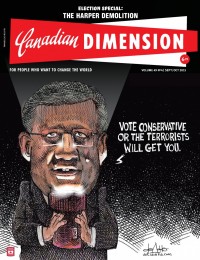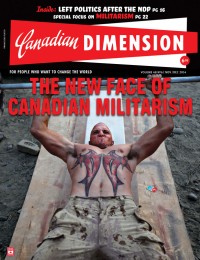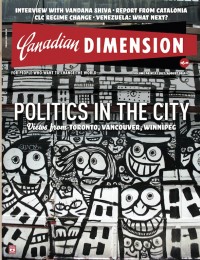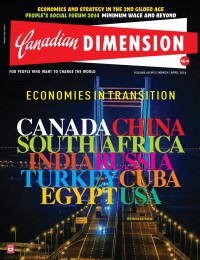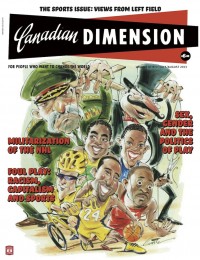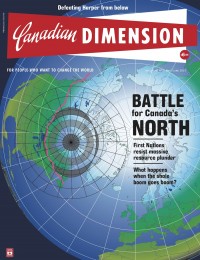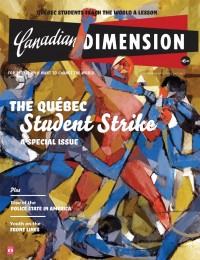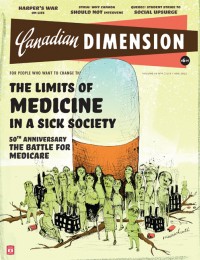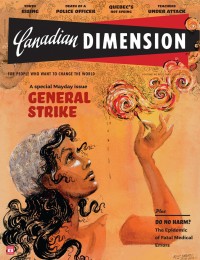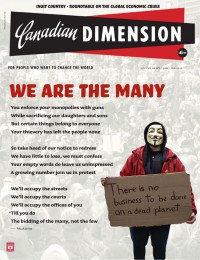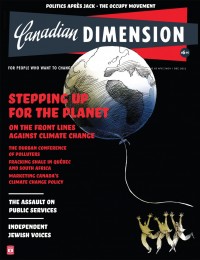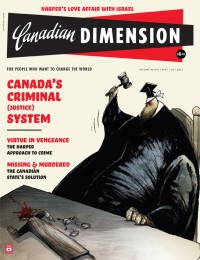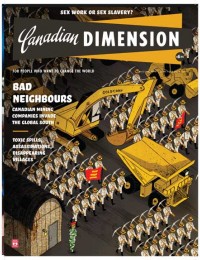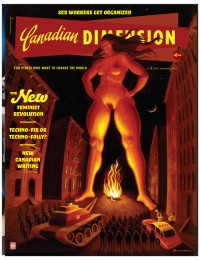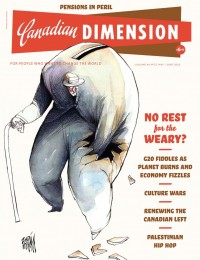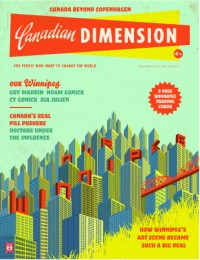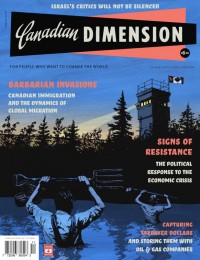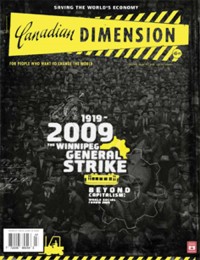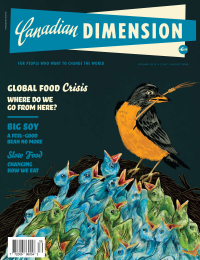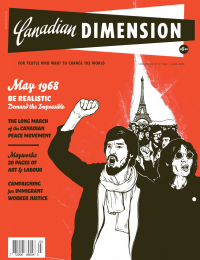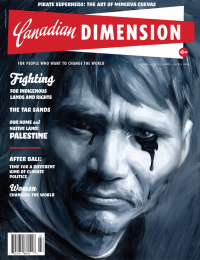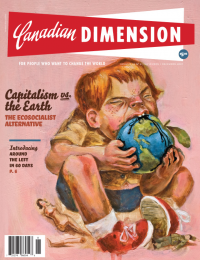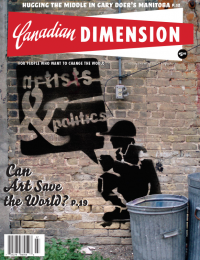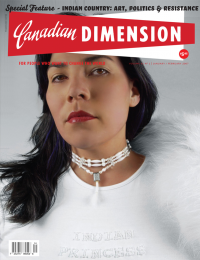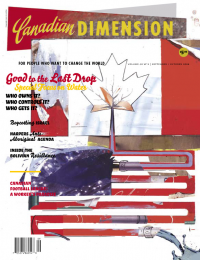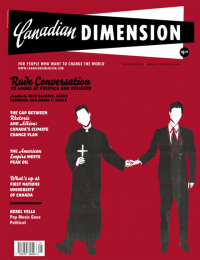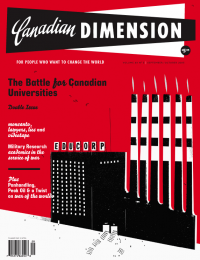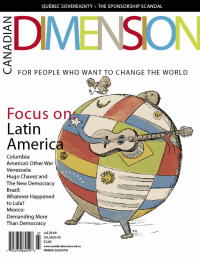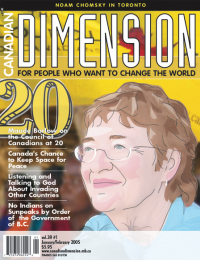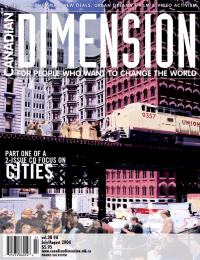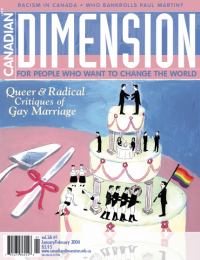Web Exclusive: Some Thoughts on Orwell and the Haitian Elections
The present debate would lead observers to believe that the elections in Haiti are either an important and necessary step in the right direction or a travesty of justice. The continued exclusion of a number of political parties, most notably Fanmi Lavalas, allows the defenders of democracy to claim foul. They are right, of course. But the problem is that they frame the debate in a way that validates a global system of injustice. In appealing to the ‘democracies’ to the North to allow free and fair elections in Haiti, the core imperialist countries appear to allow something at home that they prohibit abroad. In fact, American and Canadian voters have far less freedom than Haitians. It just looks different.
This phenomenon touches every aspect of reportage from Haiti. In fact, it frames any thought that we have about anything. George Orwell described the outlines of this intellectual trap in 1945 in ‘Notes on Nationalism.’ Illiterates and great scholars are equally vulnerable to the disease. Nationalism, in Orwell’s sense, refers to one’s allegiances. So, class, gender, and ethnic positions might lead us to a ‘nationalist’ position. Orwell observed the phenomenon among a group he knew well: “The average intellectual of the Left believed, for instance, that the war was lost in 1940, that the Germans were bound to overrun Egypt in 1942, that the Japanese would never be driven out of the lands they had conquered, and that the Anglo-American bombing offensive was making no impression on Germany. He could believe these things because his hatred for the British ruling class forbade him to admit that British plans could succeed.” We bring our prejudices and hatreds with us wherever we go, even those that have a solid foundation. The problem is that hatred clouds our vision. You cannot see reality through hatred. Orwell put it this way: “Loyalty is involved, and so pity ceases to function.” This danger is present on all sides of the political and national and religious and gender and class spectra: “As for the nationalistic loves and hatreds that I have spoken of, they are part of the make-up of most of us, whether we like it or not.” So, what do we do with these biases that interfere with our judgment?: “Whether it is possible to get rid of them I do not know, but I do believe that it is possible to struggle against them, and that this is essentially a MORAL effort.” In relation to the Haitian problem, some analysts assume that their work is over once they have thrown in their lot with the Haitian poor. But it is very rare that the reality of the lives of the Haitian poor come through in their advocacy. There are stock phrases that stand in for ‘them.’ The Haitian poor are assumed.
There are very few authors who infuse their writings with their intelligence and humanity that refelct Orwell’s moral challenge. Two such intellectuals are E. P. Thompson and Colin Samson. When Thompson was organizing an anti-nuclear movement in Europe in the early 1980s, he signalled how ‘nationalism’ was operating. The biases of the dissidents on the Communist side of the Iron Curtain were the mirror image of those of Western activists. They also succumbed to the Manichean framework that extinguishes the spark of humanity in all of us. Their hatred of the Communist regime was such that they believed it lied about everything and that the Western governments were correspondingly noble. So, for instance, they accepted as given Kissinger’s claims that Allende of Chile was a communist dictator. He must have been, because he opposed the United States that the dissidents under Soviet rule had fixed as their saviour. Ideological positions, once hardened, can atrophy humanity and make communication impossible. Edward Thompson struggled to relight the flame that connects people across borders of all kinds. The Iron Curtain was constructed to keep two masses of humanity from knowing each other. What a mammoth job Thompson and his colleagues took upon their shoulders!
The two authors have quite different resources at their disposal. Joegodson does not have access to libraries and electronic resources, as does Paul. Paul no longer has access to Joegodson’s street culture. But we break through each other’s ignorance. We both take as given that we are misinformed. So we look to communicate the reality of our lives and of our situations. We think this is the kernel of mature relations between people divided by history and powerful interests. In relation to the elections, we shared a few thoughts.
Joegodson has had to adjust his view of the world to accommodate the reality of the situation of Amerindians in Canada. Nothing and no one that comes from the North hints at the depth of the continuing assault upon North American Natives. Understanding the plight of the Innu people who live in the Quebec, Labrador Peninsula allows Joegodson to understand better the place of Haiti in the world. While many poor Haitians would happily accept a visa to settle in Canada, the Innu want nothing more than Canada to get out of their territory. Only a couple of generations ago, the Canadian governments tried to force these nomadic people into permanent settlements. They face enormous pressures to relinquish their great expanses of hunting grounds to the benefit of the capitalist states of Newfoundland and Quebec who covet the mineral, forest, and hydroelectric potential of the lands. Elections? Elections are a way of stripping the Innu of their heritage. Elections do not exist for the Innu to offer choice, but to take choices away.
One of the very few scholarly books infused with humanity is Colin Samson’s A Way of Life That Does Not Exist. He is an observer of the Innu in the face of this continuing colonization of their territory. This is one of only a handful of books on foreign policy that connects with human beings. This is foreign policy because only someone who has broken off a part of his humanity would call the Innu people Canadian, Quebecois, or Labradorian. That is precisely what Orwell says we must struggle to avoid. A few years ago, all parties in the Canadian parliament accepted a resolution that Quebec is a nation. Whenever all political parties agree on something, you can be assured that it is meaningless. In this case, nothing could be more absurd than the notion that Quebec, any more than Canada, is a nation. All political leaders threw the many First Nations living and struggling in the territory claimed by the Quebec state under the bus in order to flatter the French Canadian nationalists (in Orwell’s sense of the word) and not alienate a voting block. There is one passage among many in Samson’s book that stick with Paul, who passed it on to Joegodson. Samson overheard a young Innu boy (a teen who apparently appears much younger) in conversation with the Catholic priest. “Are you real?” the boy asked. The priest was confused and asked the boy to make sense of himself. But the boy couldn’t put his finger on the question any more precisely than that. “Are you real? If you take the layers of skin away, what are you underneath?” (Apologies to Samson and the boy for the misquotes, but the sense is here.) Finally, the priest gave up and shooed the boy away, turning to Samson to call the kid an airhead. But Samson, in watching the priest and nuns among the Innu, understood the depth of the boy’s question. They could not connect with the Innu spiritually. Their spiritual life was hollow next to the Innu and yet they couldn’t let go of the arrogant notion that they were there to teach. And so no one learned.
In Haiti, the same Northern democracies that require the Innu to hold elections they don’t want are sanctioning elections. The fact that the Election Committee (Conseil Electoral Provisoire) has excluded Fanmi Lavalas from official participation does not mean that lavalasians are excluded by the voters. It simply changes the rules of the game. Lavalas is only a word. On the street, people are hearing that Rene Civil is supporting Jean Hector Anacacis of the Mouvement Democratique de la Jeunesse Haitienne. Civil is a respected lavalsian; people trust him. Voters are spreading the news that if Anacacis is elected, he will arrange for the return of Aristide to Haiti. That information is gathering momentum like a snowball going downhill. Of course, we know what happens to snowballs in Haiti.
In 2006, Preval allowed the voters to believe that he was Aristide’s ‘twin.’ Fanmi Lavalas was then, like now, banned. The people did not let that stop them from voting ‘Lavalas.’ Subsequently, Preval betrayed them and has earned their contempt. People are under the impression that Jude Celestin, who is running for a party called INITE (Unity), is the ‘nephew’ of Preval. There is much controversy in the press, but what matters is what Haitian voters believe. The rumour is that Celestin has thirteen mistresses called, in Creole, manman piti yo. In other words, Celestin doesn’t marry the women who have his children. Many people refer to him as a vakabon (cad) as a result of his domestic politics. So, the rumour is that his current manman piti is Preval’s niece. People say that Preval wants Celestin to win the presidency to keep him from moving on to the next manman piti li. Again, this information comes with a disclaimer. We are reporting rumours, not necessarily truth. However, since Haitian electors have been confronting official lies forever, there is no reason to assume that their scuttlebutt is not closer to their truths.
At the very least, they may create a reality they want that the powers to the North forbid. In 2006, for instance, they found a way to vote for ‘Lavalas’ by saying that Preval was a stand-in for the banned party. At least they made their intentions known to the world.
And so it goes. Charles Henry Baker is once again the buffoon of the present election. In 2006, he spent a fortune trying to schmooze the electorate. In one event that our friend Lundi attended, a huge crowd was on hand to eat and drink from Baker’s trough. Everyone was in the best of cheer. Then, at one point, Baker called from the microphone, with great optimism, “Who are you going to vote for?” The huge crowd responded in one voice, their mouths full of chicken and beer, “Preval!”
Baker is spending less this time. Joegodson thinks he really wants to be the president of some country, and Haiti looks like his best chance.
North Americans who think that democracy exists at home and is being denied Haitians should reconsider their own lands. But only in the spirit of Orwell’s moral imperative is it even possible.





